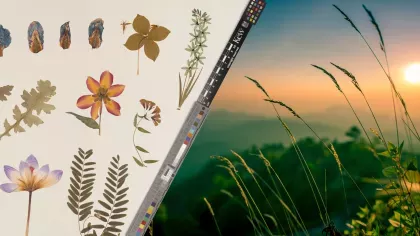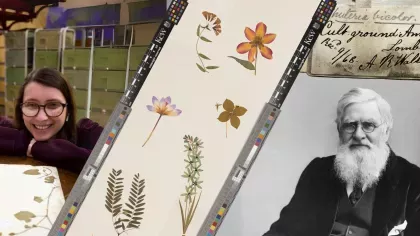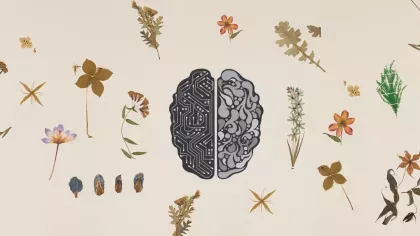19 December 2023
Unlocking nature's secrets: Kew's digitisation triumphs of 2023
2023 has been our first full year of mass digitisation to bring our entire collection of over 8 million herbarium and fungarium specimens online for those around the globe to access. Here are our top highlights.

We are thrilled to share the incredible milestones achieved through our groundbreaking Digitisation Project in 2023. This ambitious endeavor has propelled us into a new era of botanical exploration and conservation.
Join us on this exciting journey as we recount the spectacular successes that have unfolded, all thanks to the dedication of our remarkable team and the support of nature enthusiasts across the world.
1. Hitting 1 million specimens, and then 2 million soon after!
In July, we proudly announced the digitisation of one million specimens, a feat that captured the imagination of plant enthusiasts globally. And then, just four months later, we doubled that number, reaching a staggering two million digitised specimens!
Among these specimens, we’re delighted to have fully digitised a number of plant families including our legumes collection (the largest in the world), Araceae and Asteraceae (AKA Compositae).
Our Herbarium at Kew contains more than 7 million plant specimens, of which 10% or around 700,000 are legumes, making it one of the greatest collections of leguminous plant material in the world.
At present, we are rapidly digitising an impressive 70,000 specimens each week, a testament to the relentless commitment of our incredible Digitisation Team.
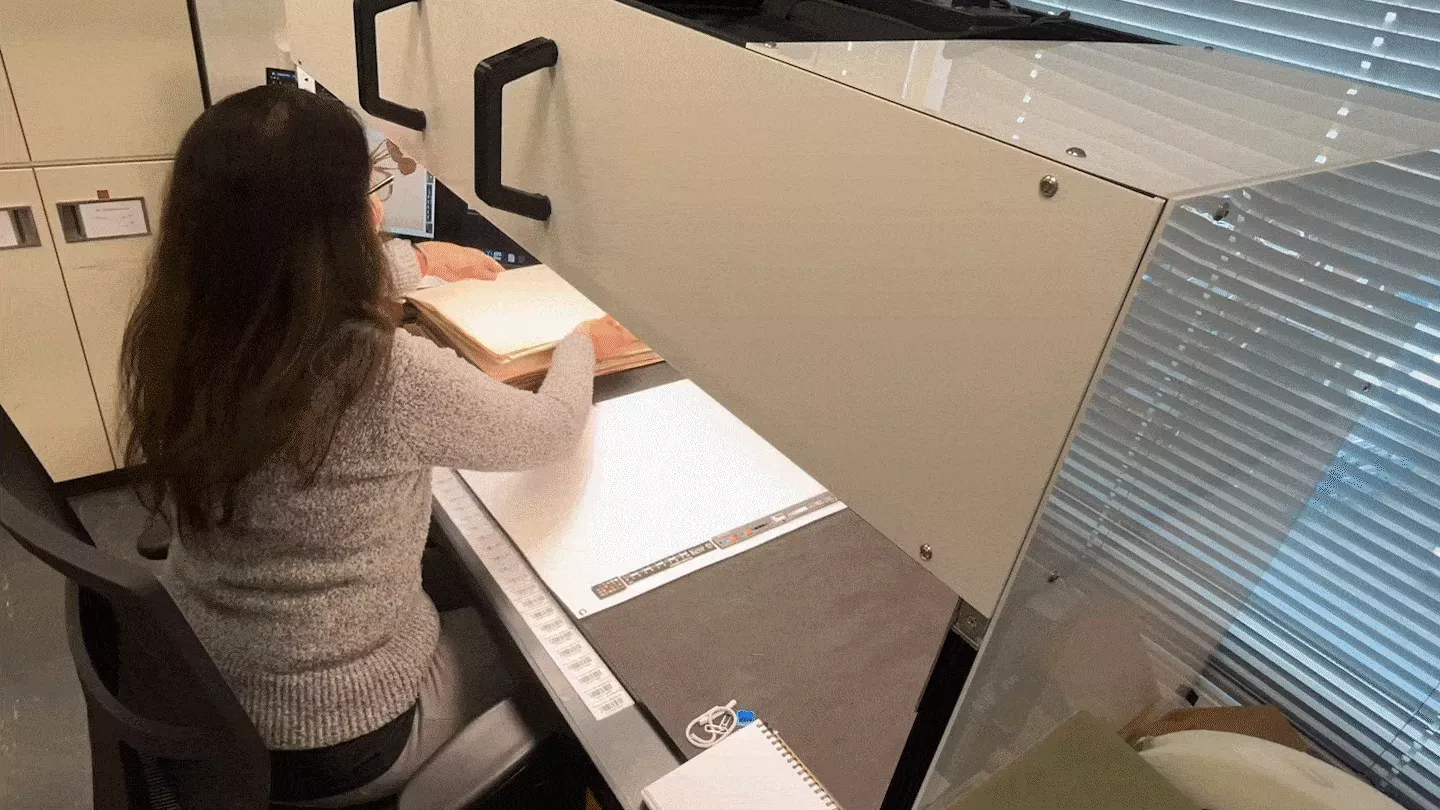
2. A global spotlight: Featured on Sky News and BBC World Service
Our monumental achievement of one million digitised specimens did not go unnoticed. Sky News broadcasted a captivating feature, reaching audiences far and wide. Additionally, the BBC World Service featured our project in an episode of 'Science in action' to showcase our digitisation triumph.
The global coverage has not only celebrated our success but has also highlighted the critical importance of preserving botanical treasures for future generations.

3. We revealed specimens from Wallace and Darwin!
Delving into our extensive collection, we uncovered treasures that had remained hidden for generations. Specimens meticulously collected by the pioneering naturalists Alfred Russel Wallace and Charles Darwin were among the gems we unearthed.
These exciting discoveries not only add to our understanding of these remarkable scientists and their botanical exploration, but also reveals a lot about the ecosystems of the regions they visited, providing a window into the past that today's scientists can use for climate modelling and conservation.


4. Growing our Digitisation Team to 275!
Just a couple of years ago, we had no more than a handful of digitisers. Today, recognising the magnitude of our digitisation goals, we now have an impressive 275 people working on the project, each contributing their expertise to this monumental effort.
And the best part? We're still growing!
This collaborative spirit ensures that no leaf is left unturned in our quest to preserve and share the botanical wealth housed within the walls of our herbarium here at Kew.

5. Harnessing global support: Plant enthusiasts raised thousands for the project
In a historic first for Kew, we established a channel for enthusiasts worldwide to directly contribute to the preservation of our prestigious specimens. The response was overwhelming, totaling an incredible £8105 from just a handful of donations.
This outpouring of support demonstrates the shared passion for safeguarding the botanical heritage housed at Kew and the vision to unlock these specimens for researchers to use around the world to help save people and planet. Immortalise your own piece of botanical history and help unlock nature's secrets – donate to the project today.

6. Our digitised specimens started being used by scientists to conserve species!
Our digitised specimens are not merely digital artifacts; they are catalysts for real-world impact. The British Virgin Islands project, funded by Biodiversity Challenge Funds (Darwin Plus), exemplifies the tangible benefits of our digitisation efforts.
Working in collaboration with partners such as National Parks of the Virgin Islands (NPTVI) and Herbaria in Puerto Rico, we are using our digitised collections to protect the biodiversity of the British Virgin Islands.
Kew scientist Juan Viruel emphasises the importance of biodiversity metrics derived from our digitised collections. These metrics empower local stakeholders, aiding in informed decision-making, threat mitigation, and the design of effective conservation plans.
From DNA analysis to estimating species distributions, our digitised specimens are on the frontlines of safeguarding the unique plant species of the British Virgin Islands.
"What is most exciting is that researchers are already actively using our digitised collections to tackle some of the biggest challenges facing our planet today. With this in mind, the impact of unlocking our entire collection will be immense."
- Dr Paul Kersey, Deputy Director of Science and Project SRO

As you can see, we’ve already achieved so much within just the past 12 months with the power of collaboration, innovation, and a shared commitment to preserving the wonders of the natural world.
As we continue this exciting journey, we invite you to get involved with the Digitisation Project and become part of the discoveries and triumphs in the ever-evolving realm of botanical exploration at Kew.
From joining our impressive team of over 2000 volunteers to donating, see our opportunities below and become a part of something that is creating a brighter future for all.
Help us digitise our prestigious collections
Get involved with these new opportunities
-
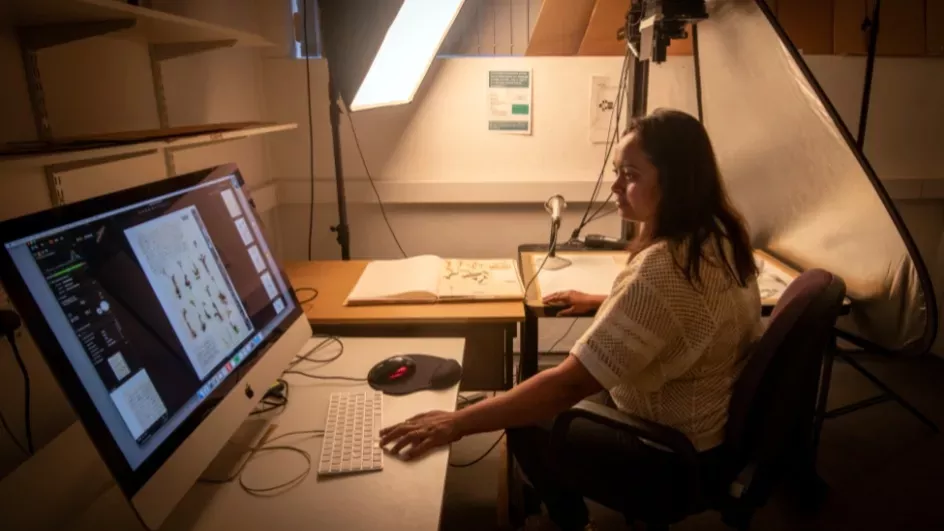
Volunteer
Become part of Kew's ambitious project and help make one of the largest collections in the world freely accessible to everyone around the world.
-
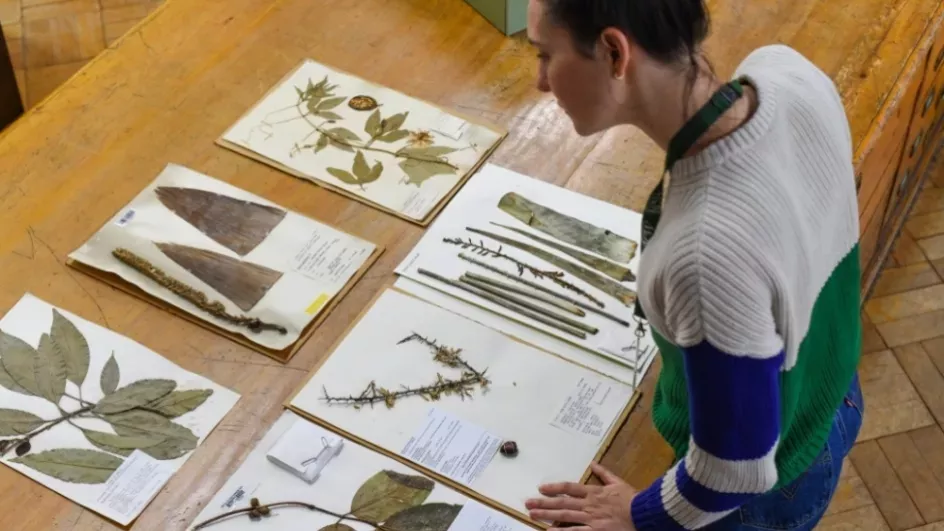
Donate
Donate today and immortalise a piece of botanic history that can aid research into urgent global challenges - helping protect our planet for future generations.
-

Join
See what job opportunities are available to digitise our collection and play a part in helping scientists across the world access our invaluable specimens.

